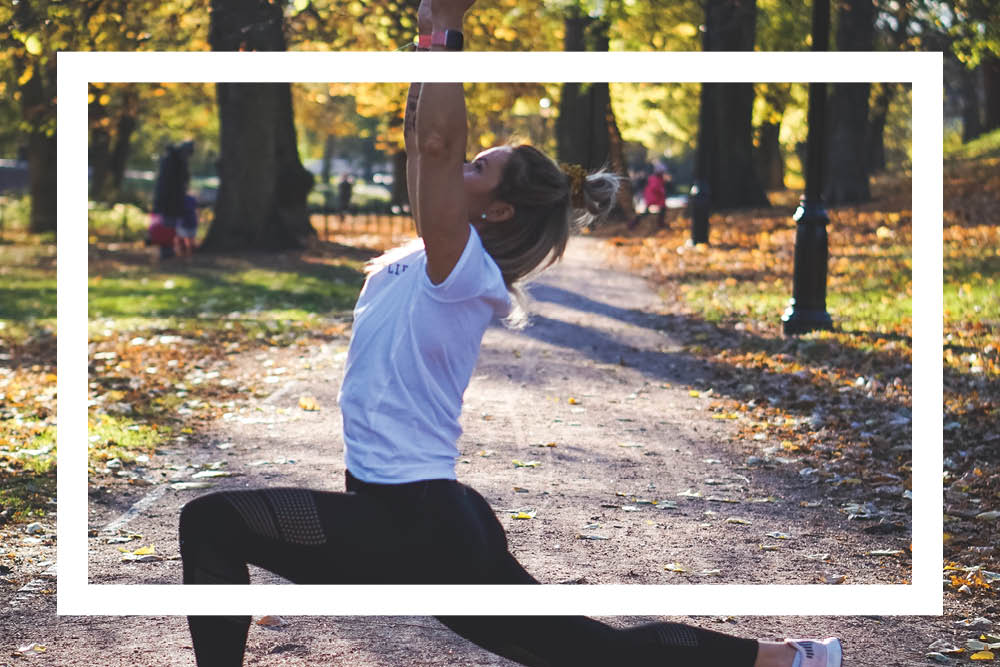Why City Professionals Should Practise Yoga

When it comes to health & wellbeing, most City Professionals know they should practice yoga. Everyone knows that as the body ages it becomes more ‘stiff’. Touching the toes becomes more difficult and moving the body after sitting down in a chair all day at a desk or in front of a screen becomes that much harder. The sedentary lifestyle that we have created by virtue of the modern office means that musculoskeletal disorders are becoming more common.
No-one wants to end up becoming dependant on others or resigned to aged care as they grow older because their body has failed them. But stress? Isn’t yoga all about ‘becoming more flexible’? For most people who have bought into this myth, it means the opportunity is lost to experience this life-transforming practice.
To this extent, I have to say I count myself as slightly unusual. I started yoga because I was told I should practice ‘yoga for Stress’. I was told that I would be able to cope better in my new role at the bank if I practised yoga. Being open-minded and always looking for a new challenge, I happily went along with the suggestion. Little did I know it would be life-changing…
For the first 6 months, I faced an enormous challenge – getting to grips with a new subject matter as well as managing a small team for the first time. It was brutal.
FINDING BALANCE
https://www.instagram.com/p/B7_QEzfgO9p/?utm_source=ig_web_copy_link
It was being able to respond in the moment under pressure, the complexity of the financial transactions and the management of people who knew more about the subject than me.
Do you know what saved me from absolute meltdown in this very challenging situation? It was the yoga. Fair and square. Quite frankly, I don’t know where I’d be without it. ‘Yoga time’ was the time in the week that I could reliably count on, week in, week out. It was the space that the yoga created. It was my sanctuary.
Even better, my initial yoga experiences were in a contemporary art gallery, cum yoga space in Notting Hill. Let’s just say it made for very interesting periods of observation and reflection, surrounded by abstract art of the most esoteric degree (I even went on to purchase a couple of pieces I would observe during my classes).
Not only that, my regular Monday night class was my guaranteed sleep night. The subtle relaxation effect upon on the body after yoga is the perfect recipe for a good night’s sleep. When you’ve got a stressful job, you need all the help you can get. Sleeping well is a critical part of it.
You see, yoga is the perfect practice when it comes to the stress experienced by many City professionals. It gently releases any built-up tension stored in the body through the full range of bodily movements, including twists which are said to have a massaging effect upon the organs as they move around the connective tissue that surrounds them. By doing so, we encourage the elimination of waste materials through the detoxification pathways in the body. We know that it is through movement that the lymphatic system is stimulated. Feeling run down or a common cold coming on? Practising gentle yoga might just help your body in such situations.
YOGA FOR STRESS
https://www.instagram.com/p/B7TsUptgf7q/?utm_source=ig_web_copy_link
In terms of the physical practice, we know that yoga builds strength, through postures like ‘plank’ and the ‘warrior’ series. However, did you know that the more subtle aspects of the physical practice, such as practising forward bends is where the practice of yoga is most effective for dealing with stress? Something experienced a lot by City professionals.
The very act of engaging in forward bends sends tiny signals to the body to activate the parasympathetic nervous system (the rest and digest part of the body). Specific yogic breathing topics can reinforce this relaxation response – breathing through the nose and engaging a full diaphragmatic breath. What’s more, lengthening the size of exhale compared to the inhale is known to stimulate the parasympathetic nervous system (whereas breathing in through the mouth and the chest is quite stimulating). In yoga, this is known as the practice of ‘pranayama’, or ‘breath extension’ and a means of increasing longevity and promoting relaxation.
What’s more, we can ‘hack in’ to the body through conscious breathing and regulate our autonomic nervous system. As the body responds to signals, so it is with the breath. We all know the famous saying, ‘take a deep breath’ in response to difficult situations. Yoga takes it a step further. We know that with attention, we can learn to regulate emotions. We can be smarter about working with the frontal lobes of the brain, rather than the mammalian or limbic part of the system, which governs emotions. We can therefore operate in a zone that is more optimal for cognition and decision-making.
Taken together with the biochemical effect of the release of the neuro-transmitter GABA in the brain (the body’s natural tranquilliser), means that yoga is the perfect antidote for the chronic stress often felt by City professionals.
On top of that (which some say is what yoga is all about), comes meditation. Incorporating meditation into a yoga class (or even better, your daily life) means that you start to train your mind ‘muscle’. Slowly but surely, the space between stimulus and response starts to widen. You become less impulsive, and more responsive in a constructive way. By doing so, your emotional intelligence starts to develop.
Highly trained and skilled City professionals will only go so far in his or her career unless the more subtle aspects of ’emotional regulation’ can be mastered. Yoga is the perfect vessel for achieving that. Recent studies have shown that the regular practice of yoga and meditation may help reduce the physiological markers of stress through the endocrine system. Although further work is required in this area, it is clear that what the ‘ancient yogis’ said about yoga many years (if not thousands of) ago, are starting to be demonstrated in the west today.
I often admire the senior leaders in my institution and industry and think they are natural ‘yogis’. They possess a persona that seems efficaciously cool, calm and collected. I like to think that is what the skills being a yoga practitioner gives you. The feeling of having a strong body, that feels supple and toned, and a mind that is receptive and responds well under pressure.
People often ask what Yogibanker is all about, and I simply explain that what comes up, must come down. You can’t stay in a heightened state of alertness with increased levels of cortisol activity, all the time. You need something that brings you can back down. Back to homeostasis, that is.
At the end of the day, it’s all about the ‘Yin’ and ‘Yang’. They feed off each other. Just like the yoga feeds off the stress.
I’ve now gone on and completed my yoga teacher training where I’m bringing more yoga to fellow workers. Recently I helped establish an employee-led yoga program at the bank, creating a yoga for beginners course and classes, as well as running classes for more experienced students. Helping other City professionals with yoga for stress has now become my passion, especially to those who need it the most – my colleagues.
You see, Yoga is much more than becoming ‘flexible’. It’s way more powerful than that. The consistent feedback I get from my students is the feeling of ‘zen’ after class; how they walked into class feeling stressed, and then leave in a totally different state. Once you start looking forward to how you are going to feel after the class before you even enter the class, whilst moving your body in an enjoyable and fun way, then you know yoga is for you.
To this extent, if I were to give one piece of advice to any City professionals who have a challenging corporate role, it’s to take up yoga. Once you’ve discovered how good the yoga makes you feel, you’ll make time for it in your busy calendar. Your working life will change forever, and your body (and mind) might just too.
Scott Robinson, (aka the ‘Yogibanker’). Meditation & Yoga for the Finance Community. To keep up to date with Scott, be sure to follow him on Instagram








